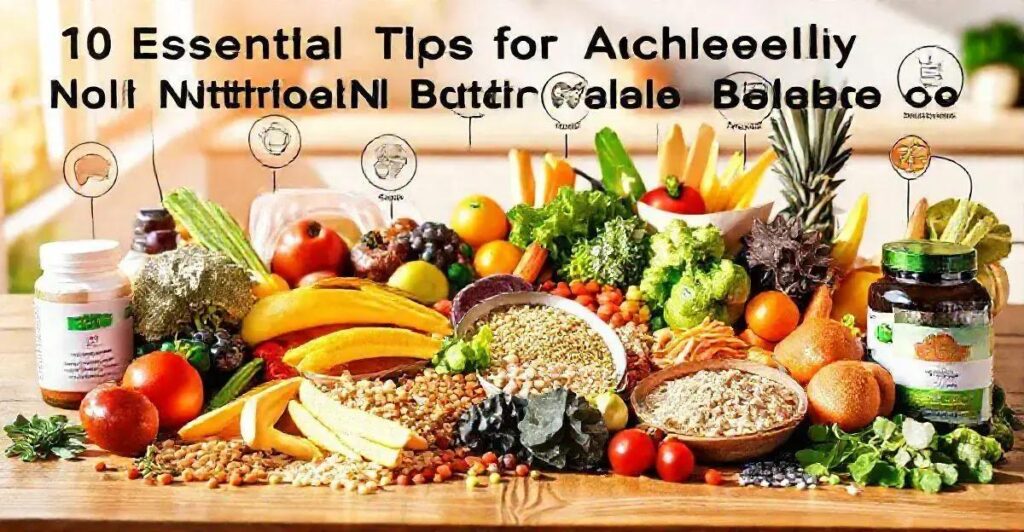Are you tired of feeling run down and susceptible to illness? Did you know that certain foods can help boost your immune system and keep you healthy? Immune-boosting foods are packed with nutrients that support your body’s natural defense against infection and disease.
From leafy greens to fatty fish, there are many delicious and easy-to-add foods that can help you feel your best. In this post, we’ll explore the top immune-boosting foods and provide tips on how to incorporate them into your diet.
Boost Your Immune System with the Right Foods
When it comes to boosting your immune system, it’s not just about popping a vitamin pill or relying on over-the-counter remedies. The truth is, a strong immune system starts with a balanced diet rich in nutrients that support your body’s natural defense.
Foods that are high in antioxidants, omega-3 fatty acids, and other essential vitamins and minerals can help fortify your immune system. From leafy greens like spinach and kale to fatty fish like salmon and sardines, there are many delicious and easy-to-add foods that can help you feel your best.
By incorporating these immune-boosting foods into your daily diet, you can say goodbye to feeling run down and hello to a stronger, healthier you.
The Science Behind Immune-Boosting Foods
The science behind immune-boosting foods is rooted in the understanding that a balanced diet provides the body with the necessary tools to function optimally.
When we consume foods rich in vitamins, minerals, and antioxidants, our immune system is better equipped to fight off pathogens and disease-causing microorganisms.
Research has shown that certain compounds found in foods, such as polyphenols and omega-3 fatty acids, have anti-inflammatory properties that can help to reduce the risk of chronic diseases.
Understanding the Mechanisms
By examining the scientific evidence and understanding the mechanisms by which immune-boosting foods work, we can make informed choices about our diet and lifestyle to support optimal immune function.
Top 10 Immune-Boosting Foods to Add to Your Diet
When it comes to boosting your immune system, what you eat matters. A diet rich in immune-boosting foods can help to support your body’s natural defense against infection and disease. Here are the top 10 immune-boosting foods to add to your diet:
1. Salmon, rich in omega-3 fatty acids,
2. Spinach, packed with antioxidants,
3. Sweet Potatoes, high in vitamin A,
4. Garlic, a natural antibacterial,
5. Berries, bursting with antioxidants,
6. Green Tea, rich in polyphenols,
7. Turmeric, with its anti-inflammatory properties,
8. Fermented Foods, supporting gut health,
9. Citrus Fruits, high in vitamin C, and
10. Dark Chocolate, with its flavonoids.
Incorporating these foods into your diet can help to boost your immune system and keep you healthy.
The Role of Probiotics in Immune Function
Probiotics are live microorganisms that, when administered in adequate amounts, confer a health benefit on the host. In the context of immune function, probiotics play a crucial role in maintaining a healthy gut microbiome.
Research has shown that probiotics can help to support immune system function by increasing the production of antibodies, activating immune cells, and reducing inflammation. Probiotics also help to maintain the integrity of the gut lining, preventing the absorption of toxins and undigested particles into the bloodstream.
This can help to reduce the risk of chronic diseases such as inflammatory bowel disease, allergies, and autoimmune diseases.
By incorporating probiotics into your diet through fermented foods like yogurt, kefir, and sauerkraut, or by taking a probiotic supplement, you can help to support your immune system and maintain overall health.
Other Nutrients That Support Immune Health
In addition to the immune-boosting foods and probiotics discussed earlier, there are several other nutrients that play a crucial role in supporting immune health.
Vitamin D is essential for immune system function, and deficiencies in vitamin D have been linked to increased susceptibility to infections.
Zinc is another important nutrient that supports immune function, and deficiencies in zinc can impair the body’s ability to fight off infections.
Selenium, a mineral found in foods such as Brazil nuts and fish, also plays a role in immune function by supporting the production of antibodies.
Finally, Iron is essential for immune system function, particularly for the production of white blood cells.
Incorporating these nutrients into your diet through whole foods or supplements can help to support your immune system and maintain overall health.
Conclusion: Eat Your Way to a Stronger Immune System
In conclusion, a strong immune system is essential for maintaining overall health and preventing chronic diseases. By incorporating the right foods, probiotics, and other nutrients into your diet, you can support your immune system and maintain optimal health.
Remember to eat a balanced diet rich in fruits, vegetables, whole grains, and lean proteins, and consider taking supplements or consulting with a healthcare professional if you have specific dietary needs.
By making healthy food choices, you can take control of your immune health and live a healthier, happier life.
FAQ – Frequently Asked Questions about Immune-Boosting Foods
What are the best foods to eat to boost my immune system?
Eating a balanced diet rich in fruits, vegetables, whole grains, and lean proteins is essential for boosting your immune system. Some specific immune-boosting foods include salmon, spinach, sweet potatoes, garlic, berries, green tea, turmeric, fermented foods, citrus fruits, and dark chocolate.
How do probiotics support immune function?
Probiotics are live microorganisms that, when administered in adequate amounts, confer a health benefit on the host. They support immune function by increasing the production of antibodies, activating immune cells, and reducing inflammation.
What are some other nutrients that support immune health?
In addition to probiotics, other nutrients that support immune health include vitamin D, zinc, selenium, and iron. These nutrients play a crucial role in immune function, particularly in the production of white blood cells.
Can I take supplements to support my immune system?
Yes, you can take supplements to support your immune system. However, it’s essential to consult with a healthcare professional to determine the best course of action for your specific needs.
How can I maintain a healthy gut microbiome?
Maintaining a healthy gut microbiome is essential for immune function. You can do this by eating a balanced diet rich in fiber, taking probiotics, and avoiding processed foods.
What are some signs of a weakened immune system?
Some signs of a weakened immune system include frequent illnesses, fatigue, and difficulty recovering from infections. If you’re experiencing any of these symptoms, it’s essential to consult with a healthcare professional to determine the best course of action.




